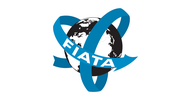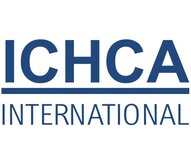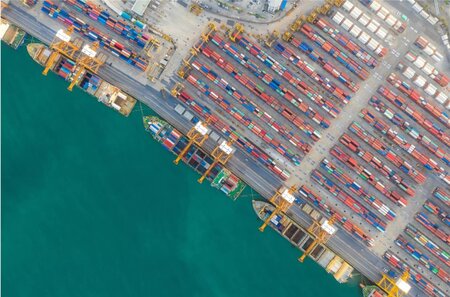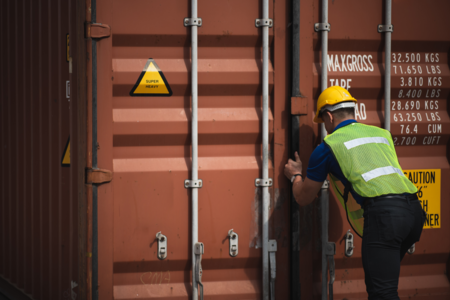Achieving Cargo Integrity is all about increasing awareness and improving standards.
TT Club statistics indicate that as much as 66% of incidents related to cargo damage in the intermodal supply chain can be attributed in part to poor practice in the overall packing process, including not just load distribution and cargo securing, but also the workflow from classification and documentation through to declaration and effective data transfer.
These incidents are estimated to cost marine aviation & transport insurers in excess of USD500 million each year, alongside the major casualties, such as 'MSC Flaminia' (July 2012) or 'Maersk Honam' (March 2018). Overall economic losses are calculated to be many times this; supply chain stakeholders are collectively bearing a significant, largely avoidable burden.
CTU Code - quick guide
Working extensively with partners in the Cargo Integrity Group, we have compiled 'CTU Code - a quick guide' as a route-map for the broad industry to engage more successfully with the CTU Code and to assist wider understanding of good packing practices.
Invasive pest animations
Packing parameters animations
CTU code consequence animations
What is cargo integrity and what does it include?
Cargo integrity is the adoption of best practice in all aspects of cargo care, through the intermodal supply chain.
- Selection of suitable unit for intended commodity and journey;
- Ensuring that the unit positioned for packing is sound and free from previous cargo residues;
- Prevention of contamination by plants, plant products, insects or other animals;
- Proper packing of cargo within a unit, including load distribution, and effective blocking, bracing and securing;
- Correct classification, packaging, marking/placarding, documentation and declaration of packed goods, particularly those that are regulated (dangerous, waste etc.);
- Complete and transparent transmittal of all data regarding contents (including compliant verified gross mass), enabling appropriate safe handling through the intermodal supply chain; and
- Effective methods of stowing and securing of units for transport in land, sea or air modes.
Why is cargo integrity important?
- Protection of the condition and value of cargo;
- Well-being of people handling the goods at warehouses and throughout the entire anticipated intermodal journey;
- Prevention of unevenly loaded units or insecure cargo causing incidents, particularly during road or rail transport;
- Reduction of the number of injuries caused when unpacking;
- Prevention of undeclared or misdeclared dangerous goods causing fires, at warehouse facilities, at ports and terminals, and at sea.
Who needs to be aware of cargo integrity?
There are many direct stakeholders in the intermodal supply chain, including:
- Operators of cargo transport units (CTUs);
- Shippers, Packers, Consignors;
- Freight forwarders and logistics operators;
- Carriers (by road, rail, inland waterway and sea); and
- Anyone else involved in the movement of CTUs.
- There are also numerous indirect stakeholders who influence the practices adopted in intermodal transport, such as international traders, fiscal authorities, enforcement agencies, emergency responders, and insurers.
Anyone concerned about the movement of goods internationally needs to be aware of the potential safety, security and environmental impacts involved and should be interested in the overarching aims of TT Club’s Cargo Integrity campaign.
What is the CTU code in cargo integrity?
The 2014 Code of Practice for Packing of Cargo Transport Units (CTU Code) applies to packing and transport operations throughout the entire surface intermodal chain. It provides guidance not only to those responsible for packing and securing cargo, but also to those who receive and unpack such units.
It was jointly developed by the International Maritime Organization (IMO), the International Labor Organization (ILO) and the United Nations Economic Commission for Europe (UNECE).
The non-mandatory global Code of Practice also addresses issues such as training and the packing of dangerous goods. The CTU Code is intended to assist the industry, employers’ and workers’ organisations as well as Governments in ensuring the safe packing of cargo in CTU of all kinds.
How do I follow best practice?
We believe there are two fundamental steps inherent in achieving compliance and assurance throughout the supply chain:
- Ensure that you understand what role(s) you have and related obligations, and that your own employees are competent to carry out all tasks in a way that does not compromise safety, security or the environment;
- Seek assurance from all your customers, contractors and suppliers that they also understand their obligations and are committed to good practice.
Where can I find out more about cargo integrity?
Cargo integrity documentation
- 2014 CTU Code (MSC.1/Circ.1497)
- Informative material related to the CTU Code (MSC.1/Circ.1498)
- IMO Due diligence checklist (MSC.1/Circ.1531)
- IMO CTU Code website
- UNECE CTU Code webpage
Dangerous goods documentation
- International Maritime Dangerous Goods (IMDG) Code
- UN Orange Book (UN Recommendations on the Transport of Dangerous Goods Model Regulations)
- Hazcheck Restrictions Portal
- Cargo Information Notification System (CINS) website
Training resources
The role of CTUpack e-learning from Exis Technologies is to support the training of consolidators and packers, and promote good practice in compliance with the CTU Code. Beginning with a foundation course, CTUpack will develop to address special cargoes and training for all aspects of CTU packing. The course is sponsored by the TT Club.
CTUpack e-learning™ can be purchased directly from CTUpack E-Learning - Exis Technologies. There are discounts for courses purchased in quantity.
Events & webinars
Container Packing Game
TT Club developed the Container Packing Game as a simplified but fun way to highlight some key packing skills.

You may also be interested in
Partners






















